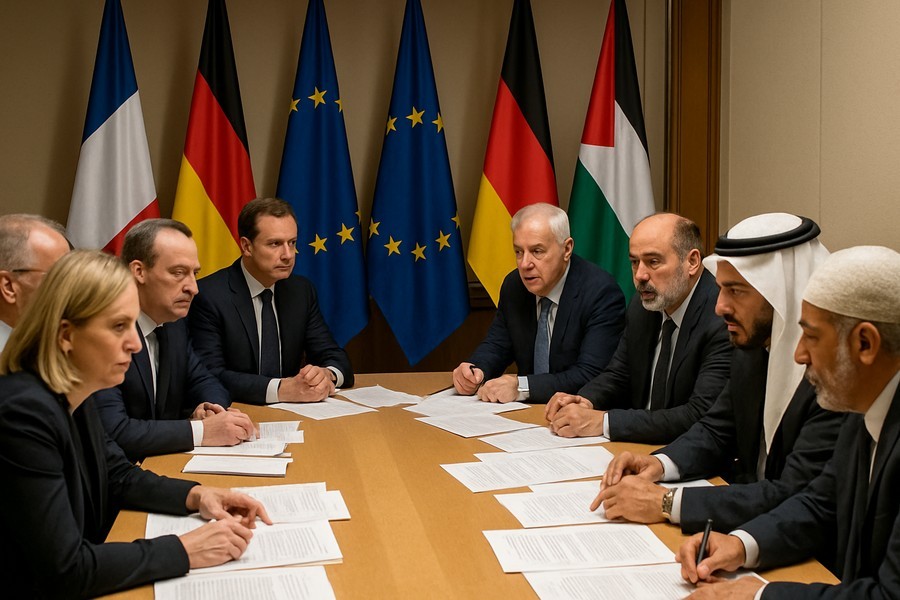
A New Chapter in Israeli-Palestinian Relations
The recent move by Britain and France to acknowledge Palestine as a state at the United Nations marks a transformative point in the enduring conflict between Israel and Palestine. This decision is not only a monumental moment in history, but also demonstrates a diplomatic gamble, revealing that these significant European nations think the situation has escalated to a degree that necessitates such an extraordinary action.
Stepping Up Amidst the Gaza Crisis
With the ongoing crisis in Gaza and widespread disapproval directed towards both Israel and Hamas, the French President asserted the importance of justice prevailing over power. This strategy, carried out in conjunction with the UK and backed by Saudi Arabia, aims to keep the concept of a two-state solution alive.
Supporters of this approach believe it is the only way to secure a just and mutually beneficial future for both societies. The only other alternative, as stated by the UN Secretary General at a UN conference in New York, is a "one-state" solution, which would essentially entail Israeli dominance and the "subjugation" of Palestinians.
Israel's Response and the International Split
This move has sparked outrage in Israel, prompting threats of retaliation. Israel views the UN conference, coupled with the recognition of Palestine by multiple countries, as an undeserved reward for Hamas, especially following its attack on Israel. Some Israeli ministers are calling for the annexation of parts of the occupied West Bank, permanently eliminating the prospect of a viable Palestinian state there.
The American government remains supportive of its ally, Israel, and opposes the European action, going as far as barring the Palestinian Authority (PA) President from attending the conference in New York. This has resulted in the deepest rift to date between Washington and its European allies over the resolution of the Middle East conflict.
Current Ground Reality and the European Strategy
Despite the escalating tensions, the Europeans feel they have no other choice given the current circumstances. Israel is deploying additional military forces into Gaza City with daily casualties among Palestinians; Hamas continues to hold numerous hostages; and the West Bank is beleaguered by Israeli settlement expansion and settler violence.
The European approach is a bid to demonstrate that diplomacy can offer a feasible alternative. The initial objective is to broker a peaceful conclusion to the Gaza war, followed by a long-term two-state solution for Israel and Palestine.
Role of Saudi Arabia and the Arab League
The UN conference, led by Saudi Arabia and backed by the Arab League, called on Hamas to disarm and hand over its weapons to the PA, suggesting that Hamas cannot be a future leader for Palestinians. This demonstrates the potential influence of diplomatic efforts over Hamas.
The European approach also leaves the door open for normalizing relations with Saudi Arabia, a goal long pursued by both Netanyahu and the American President.
Consequences of Acknowledging Palestinian Statehood
Despite the potential benefits, the decision to recognize Palestine as a state against the wishes of the American government is a significant diplomatic risk. Without the United States leading the effort, the same level of pressure cannot be exerted on all parties involved. As a result, the American President continues to reject the European approach.
The lack of coordination among key countries, coupled with Qatar's refusal to mediate between Israel and Hamas as it did in the past, adds to the sense of dysfunction. However, the sight of the French President at the United Nations podium symbolizes the global effort to find a solution to the "nightmare" of Gaza and to create a shared future for Israel and Palestine.
